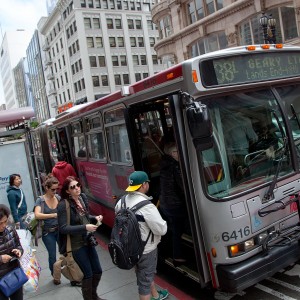"This action will at least allow the possibility that an agreement could be reached," Reiskin wrote. He also urged the union to attend an arbitration session June 24. Reiskin said that session, mandated by the City Charter, would give union officials a chance to argue for changes in the contract.
Union officials had no immediate comment on Reiskin's letter, but said they were reviewing it with their lawyers.
The SFMTA chief's message also includes a warning: If the union fails to agree to a new contract, the economic terms of the current package will continue for the next fiscal year. And if that happens, Reiskin wrote, current grievance procedures, procedures for collecting union dues and other non-economic contract provisions would lapse.
That threat could provide some incentive for the union to agree to arbitration, said John Logan, a professor of labor and employment studies at San Francisco State University. However, the process doesn't favor operators, who are deeply unhappy with what's being offered.
"There's a feeling that under the new contract, the vast majority of drivers would be paid less in real wages over the lifetime of the agreement, compared to what they make now," said Logan.
Muni operators make anywhere from $18 to $29 an hour. SFMTA officials say the new contract would bump pay to $32 an hour, the second highest in the country for transit operators. But union officials say their own accounting of the contract has operators making $1.10 an hour less.
TWU officials had been talking to the SFMTA since Friday through a mediator from the Public Employment Relations Board. But the agency received word late last night that the union was refusing to participate any further, according to Muni spokesman Paul Rose.
Rose said an unusually low number of sick calls was received Monday, one week after the start of a sickout that disrupted the commute for thousands of riders over three days. There has been no indication of any future sickouts, though such wildcat actions are difficult to predict.
